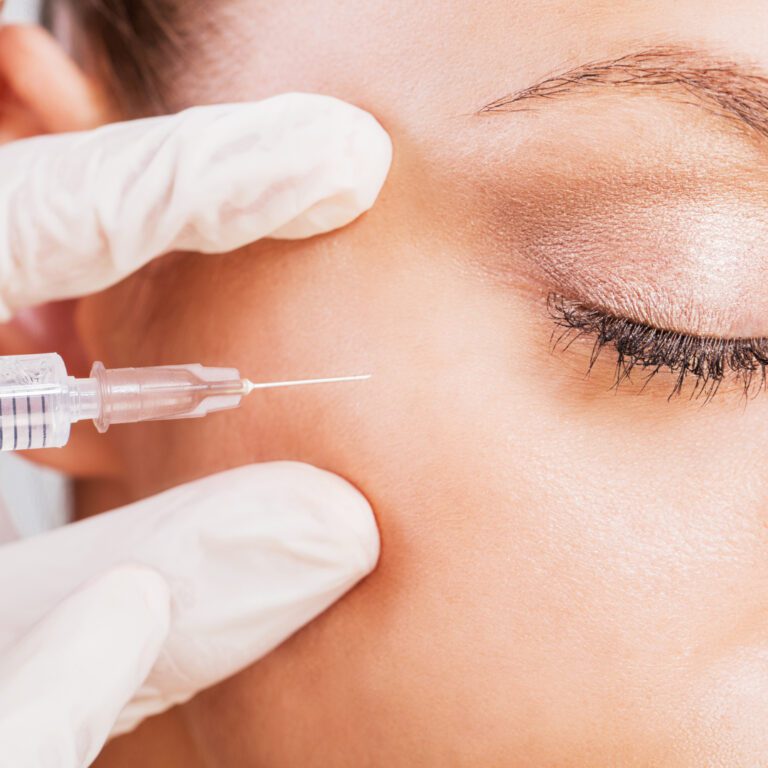No surgery is without risks, and facial plastic surgery is no exception. Any time someone is put under with anesthesia and incisions are made in the skin, there is a risk of complications. Some complications are minimal and considered a normal part of post-operation healing. Other complications are more serious that require the immediate attention of your doctor.
If you’re considering elective cosmetic surgery, then you should be aware of the risks and discuss them with your doctor.
Temporary and permanent damage from incisions
When incisions are made, there will probably be a certain amount of scarring. Your surgeon is aware of this and will minimize the visibility of the scars by making incisions in hidden spots on your face. During your post-op recovery your doctor will give you instructions on how to care for the incisions to keep scarring to a minimum.
Another risk is to your hair. If the incisions are made in an area with hair, it might take a while for that hair to grow back. In some cases, the hair might not grow back at all. And because the facelift might result in the tightening of the skin around the hairline, you may notice your hairline has become uneven. Again, this is probably a temporary side effect. If you notice any problems with your hair after your surgery, talk to your doctor about them because there are ways to restore your natural hair.
Side effects of anesthesia
Unless you have an allergy to any of the anesthesia drugs being used to knock you out for the procedure, the side effects of anesthesia are usually minimal. Depending on the drugs the anesthesiologist uses, you may experience nausea, temporary confusion and memory loss. Nausea and vomiting are the most common side effects most patients experience. These symptoms can be minimized with medications and by following your surgeon’s post-op instructions carefully.
If you’ve ever had an allergic reaction to any drugs used for anesthesia it’s very important to tell the surgeon and anesthesiologist before your procedure. It’s also important to let them know what medications you are currently taking, as some medications can interact with the drugs used during surgery. The more your doctors know about your health history, the better they can keep you safe during your operation.
Nerve damage
Some nerve damage is inevitable during your procedure. Just the act of cutting through the skin to make the incision will cause nerve damage. The bigger question is will the damage just be a temporary annoyance or a permanent condition.
It should be noted that not all nerve damage is the same. Sometimes it just means that the certain areas of your face are numb. Or it could mean you have paralysis of certain muscles.
The good news is, if caught early there are ways to restore some nerve damage. This makes it imperative to contact your doctor if you experience any numbness or paralysis of facial muscles. If it’s just a little numbness around the incision area, it could take several months for full feeling to return.
Always choose a board certified plastic surgeon
You don’t want just any doctor taking a scalpel to your face. Find a board certified plastic surgeon that specializes in facelifts to perform your procedure. Our surgeons are the best in their fields and consistently exceed patient expectations. Contact us today to discover how a facelift can make a newer you.




